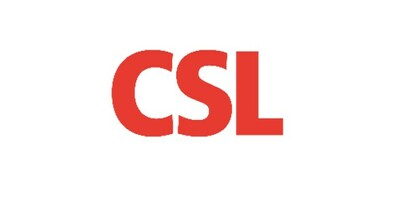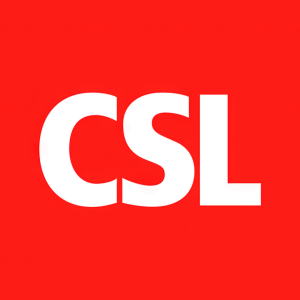The Lancet Publishes Pivotal Phase 3 Data on CSL's First-in-Class Garadacimab for HAE
CSL has announced significant results from the Phase 3 VANGUARD study, published in The Lancet, demonstrating the efficacy of garadacimab (CSL312) as a once-monthly prophylactic treatment for hereditary angioedema (HAE). The study involved 39 patients treated with garadacimab, showing an 86.5% reduction in the monthly attack rate compared to placebo. Early protection was evident, with 75% of patients attack-free within 3 months. The safety profile was favorable, with common adverse events including upper respiratory infection. Regulatory submissions for garadacimab are anticipated later this year, reflecting CSL's commitment to innovative treatments for patients with HAE.
- 86.5% reduction in monthly attack rate of HAE with garadacimab versus placebo.
- 75% of patients were attack-free within the first 3 months.
- Favorable safety profile with no serious adverse events reported.
- 81.6% of patients reported a 'good' or better therapy response.
- None.
Significant reduction in number of attacks support the potential of once-monthly garadacimab as a prophylactic therapy for patients with hereditary angioedema
KING OF PRUSSIA, Pa., March 1, 2023 /PRNewswire/ -- Global biotechnology leader CSL (ASX:CSL;USOTC:CSLLY), announced that The Lancet has published results from the Phase 3 VANGUARD study evaluating garadacimab (CSL312) as a once-monthly, prophylactic treatment for attacks due to hereditary angioedema (HAE). The Lancet paper provides detailed data on the Phase 3 study, which were recently presented during the 2023 American Academy of Allergy, Asthma & Immunology (AAAAI) Annual Meeting in San Antonio, Texas. The study met its primary and secondary endpoints, demonstrating that monthly subcutaneous injections of garadacimab significantly reduced the attack rate compared to placebo in patients with HAE.
During the double-blind, randomized, placebo-controlled, multicenter, parallel-group study, patients taking garadacimab (N=39) experienced a statistically lower monthly attack rate compared to placebo over the 6-month treatment period (p< 0.0001). The mean monthly attack rate was 0.27 for patients treated with garadacimab versus 2.01 for those on placebo (N=25), with a median monthly attack rate of 0 for patients treated with garadacimab versus 1.35 for placebo, resulting in an attack rate reduction in means of
In addition, the results published in The Lancet show patients treated with garadacimab once a month experienced a reduction in the number of time-normalized moderate or severe HAE attacks and a reduction in the number of HAE attacks requiring on-demand rescue medication compared to patients who received placebo. Garadacimab also demonstrated improvements in patient-reported outcomes with
"Despite the availability of effective preventative treatments for HAE, patients still experience breakthrough attacks and a high burden of disease, and there is a need for new treatment options that offer more convenience, choice and control," said Catherine Milch, Vice President R&D Immunology, CSL. "Based on the data published in The Lancet, we believe garadacimab has the potential to become a transformative first-in-class therapy, providing a new option where there is significant unmet need. The development of garadacimab reflects our commitment to providing life changing medicines for patients with HAE and for the physicians who treat them."
The Lancet article titled, "Efficacy and safety of garadacimab, a factor XIIa inhibitor for hereditary angioedema prevention (VANGUARD): a global, multicentre, randomised, double-blind, placebo-controlled, phase 3 trial," was published online on February 28, 2023. CSL anticipates global regulatory submissions later this year for approval of garadacimab.
About HAE and Garadacimab
HAE is a rare, genetic and potentially life-threatening condition that causes painful, debilitating and unpredictable episodes of swelling of the abdomen, larynx, face and extremities, among other areas of the body.
Garadacimab is a novel Factor XIIa-inhibitory monoclonal antibody (FXIIa mAb) currently in Phase 3 clinical development as a new type of once-monthly subcutaneous prophylactic treatment for attacks related to HAE, a form of bradykinin-mediated angioedema. Garadacimab uniquely inhibits the plasma protein, FXIIa. When FXII is activated, it initiates the cascade of events leading to edema formation. By targeting FXIIa, garadacimab inhibits the HAE cascade at its origin as compared with other HAE therapies that target downstream mediators.
Garadacimab was discovered and optimized by scientists at CSL's Bio21–based Research site, with formulation and manufacturing for the clinical programs completed at the CSL Broadmeadows Biotech Manufacturing Facility.
Orphan-drug designation for garadacimab as an investigational therapy for hereditary angioedema has been granted by both the U.S. Food and Drug Administration (FDA) and the European Medicines Agency (EMA).
CSL is also investigating garadacimab for other indications beyond HAE, including idiopathic pulmonary fibrosis, where FXIIa inhibition may play an important role in improving clinical outcomes.
About CSL
CSL (ASX:CSL; USOTC:CSLLY) is a leading global biotechnology company with a dynamic portfolio of lifesaving medicines, including those that treat haemophilia and immune deficiencies, vaccines to prevent influenza, and therapies in iron deficiency, dialysis and nephrology. Since our start in 1916, we have been driven by our promise to save lives using the latest technologies.
Today, CSL – including our three businesses, CSL Behring, CSL Seqirus and CSL Vifor – provides lifesaving products to patients in more than 100 countries and employs 30,000 people. Our unique combination of commercial strength, R&D focus and operational excellence enables us to identify, develop and deliver innovations so our patients can live life to the fullest. For inspiring stories about the promise of biotechnology, visit CSLBehring.com/Vita and follow us on Twitter.com/CSL.
For more information about CSL, visit www.CSL.com.
Media Contact
Valerie Bomberger
CSL
Office: +1 610-291-5388
Mobile: +1 267-280-3829
Email: valerie.bomberger@cslbehring.com
In Australia:
Kim O'Donohue
CSL
Email: Kim.ODonohue@csl.com.au
+61 449 884 603
Jimmy Baker
CSL
Email: Jimmy.Baker@csl.com.au
+61 450 909 211
![]() View original content to download multimedia:https://www.prnewswire.com/news-releases/the-lancet-publishes-pivotal-phase-3-data-on-csls-first-in-class-garadacimab-for-hae-301759437.html
View original content to download multimedia:https://www.prnewswire.com/news-releases/the-lancet-publishes-pivotal-phase-3-data-on-csls-first-in-class-garadacimab-for-hae-301759437.html
SOURCE CSL
FAQ
What are the results of the Phase 3 VANGUARD study on garadacimab?
When will CSL submit garadacimab for regulatory approval?
How effective is garadacimab in preventing HAE attacks?
What is the safety profile of garadacimab?








